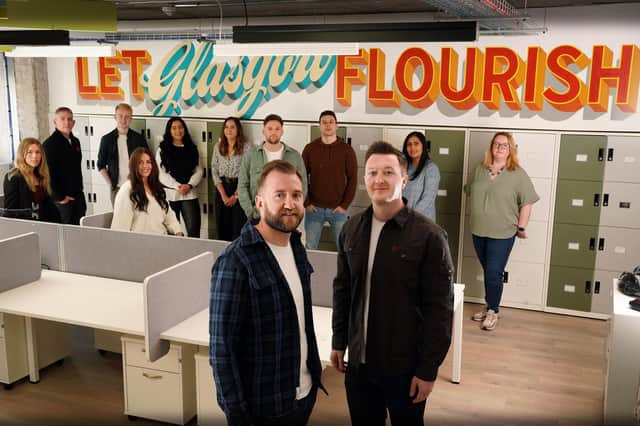Tech bosses mull adoption of pioneering AI capabilities to stem skill shortages, according to Glasgow-based Gigged.AI


Tech leaders face a dilemma of both being keen to adopt generative artificial intelligence (AI) – technology such as ChatGPT capable of producing high-quality text, images, and other content – to help plug skills gaps, but balancing this with ethical concerns, according to a new study.
Glasgow-based Gigged.AI, a start-up focused on helping firms hire tech talent, has found that just over half of UK tech leaders are considering generative AI to fill skills gaps, but 44 per cent have ethical concerns about replacing employees. The survey, which was carried out by Sapio Research and interviewed more than 250 senior executives across the UK in the second half of 2023, found that 91 per cent are experiencing a tech skills shortage, with 57 per cent saying it has worsened from 2022.
Advertisement
Hide AdAdvertisement
Hide AdAdditionally, with 58 per cent of interviewees experiencing a hiring freeze in 2023, about a quarter of tech leaders said they were planning to use generative AI to upskill their existing workforce. That came as just under three-quarters of organisations are progressing digital transformation this year, 45 per cent expect delays due to tech skills shortages.
Rich Wilson, chief executive and co-founder of Gigged.AI, which last year flagged a fresh £1.6 million investment, said: “The findings of our survey show how prominent generative AI has become for tech leaders in a relatively short space of time. At the same time, ethical concerns are a factor, so that’s a conundrum for companies in 2024. Tech leaders are under pressure across the board, but there are developing blueprints to support them, including around generative AI and quiet hiring [adding new skills without boosting staff numbers], when that’s done in the right way, and that’s something we’re actively engaged with across our client base.”
Phil Boyle, chief technology officer at Cala Homes, commented: “Generative AI could be the most important technological breakthrough of our lifetime, revolutionising how we work and interact with customers. But its potential will only be realised if we put trust and safety at the centre of this technology. The demand for these digital skills is vastly outstripping supply however, so at Cala we are investing in grassroots, early-careers, and training to boost knowledge and close the skills gap.”
Comments
Want to join the conversation? Please or to comment on this article.